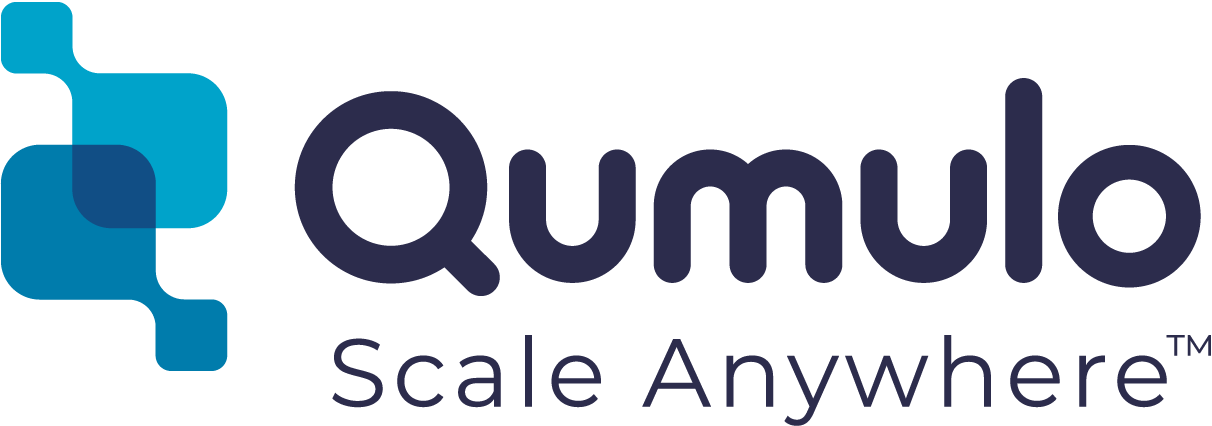It has been almost four years since Dell’s $67B acquisition of EMC, and it is a good time to really dive in and see how the Dell EMC Isilon technology, which is about 20 years old, has progressed. If your IT organization is considering Dell EMC Isilon for your file storage, here are five things to consider before signing on the dotted line.
Leverage the Power of the Cloud: Automate movement of data across on-prem and the cloud for both active data sets and data protection.
By now, all storage vendors recognize that the public cloud has, and will continue to have, an impact on how IT resources are deployed. It is important to understand how legacy vendors, most of which offer systems that were designed before the cloud was even a concept, implement their cloud solutions. Having a different file system in the cloud than the one you have on-prem is sub-optimal. Having a file system that runs with a managed service provider (MSP) and links to the major cloud vendors and works on proprietary hardware does not solve this problem either. Dell EMC Isilon runs in the MSP Faction to provide cloud services. Although Faction has seven data centers in the United States and two in Europe, there will always be a response time delay due to the fact that there is an extra connection between the Faction Datacenter and the cloud vendors. It is a simple physics problem.
Qumulo recognized from day one that the cloud would be a key part of IT storage strategies. We designed and continue to develop the entire file system to work exactly the same on-prem as it does in the cloud. This means that you have the same functionality and user interface in a hybrid cloud or multi-cloud environment. Unlike Dell EMC, we don’t involve yet another vendor with yet another data center which can bring in additional points of failure. Also, with Qumulo, you can use snapshot replication to a second cluster for integrated backup protection, eliminating the need for a separate backup application. The entire lifecycle of the file data can be managed from a single file system.
Avoid Vendor Lock-in: Easily procure, manage and extend your file data environments with an all-inclusive, transferable, single subscription license for a selection of industry-standard x86 servers or choice of public clouds.
There are several questions under this one item.
- Is the solution software-defined? Does the solution run on a selection of industry-standard x86 servers or choice of public clouds?
- Does your vendor make procurement of their software easy? Is it one price for everything, or is it piecemeal so you are never sure if you have ordered a complete solution and/or it ends up costing more than you anticipated? Does the price include all future enhancements?
- Is the system design for scale on-demand? Do you know exactly when you need to add additional storage based on accurate usage and trending information? Can you quickly and easily add additional storage with no disruption?
- As things change, just reflect on the last few months, does your vendor give you the flexibility you need with a completely transferable license regardless of which platform (on-prem or in the cloud) you choose to run the software on?
Qumulo can answer yes to all of the above questions! Our goal is to make your life easier and the management of your trillions of files simple.
Qumulo is software defined and runs on Qumulo industry-standard x86 servers HPE, Fujitsu, AWS and GCP. No vendor lock-in.
Qumulo is subscription-based and is all inclusive. All inclusive means you get everything – auditing, real-time analytics, and all new features as long as the subscription is up to date. No surprises.
Qumulo is designed to scale on-demand. Through real-time analytics we give you a detailed look at utilization and trending. Once you decide to increase your storage, you just buy another node, plug it in and we automatically re-balance everything. Your additional storage is ready to use.
Qumulo doesn’t care what or whose platform you run our software on. You can transfer the license at any time between Qumulo’s industry-standard x86 servers, HPE, Fujitsu, AWS, GCP and future platforms giving you complete control and flexibility of your environment. Optimize your environment, your way!
Gain Real Time Data Insights: Optimize and tune your resources with real-time visibility and data awareness into throughput, latency and usage.
Does Dell EMC Isilon provide you real-time visibility into your capacity, throughput and IOPS? Technically, yes, but it is not real time. Isilon has a tool called InsightIQ to provide information into your storage environment, but only after it does a file scan or a tree walk. Given the billions of files that people are trying to manage today, these tree walks can take hours or days. By their very nature, these extensive and time-consuming tree walks are often outdated by the time they finish, if they finish at all. ClarityNow is another separate tool from Dell EMC, which requires an off-cluster tree walk.
In order to make intelligent, data-driven decisions about your storage environment, you need information that represents the true state of your system in the present moment. The only way to get this is to have a system that provides real-time visibility into all your data and system performance. This requires a file system that was designed with real-time visibility built-in as an integral part of the software. An additional key benefit of having access to real-time data is that it is all accessible via the REST API making workflow automation easy.
Qumulo’s hybrid file software provides integrated real-time visibility that was included from day one in the initial design, so you have instant and accurate information on capacity, throughput, and IOPS. This real-time information is provided in a simple-to-use GUI that allows you to drill down and obtain details such as the IP address and the exact file.
Maximize ROI: Maximize total cost of ownership, data access, and data availability by efficiently using all of your storage assets.
Given the surge in machine-generated data, which is often composed of small files, understanding how data protection is handled for small files is key to getting the most out of your storage budget. One thing that often catches system administrators by surprise is what we call the “small file tax” (See my related blog post, “A Storage Nightmare: The Small File Taxman Comes Knocking”).
Ask Dell EMC how they ensure data protection for small files (i.e., files under 128KB). Dell EMC Isilon’s decades-old design forces small files to be mirrored, often double mirrored. Small files consume two to three times the storage you would expect – that’s a pretty hefty tax if there are a lot of them. While this may be effective in terms of ensuring data protection, it reduces the available storage by half in the case of double mirroring, and by two-thirds in the case of triple mirroring. At terabyte scale, this is incredibly inefficient; at petabyte scale it is mind-boggling that a vendor would require you to dedicate one-half to two-thirds of your storage solely for data protection.
Qumulo understood early on that it’s very inefficient to protect small files simply by creating copies of them. We developed a fundamentally different approach to data protection: protecting at the block level versus the file level. Working at the block level rather than the file level and using our custom erasure coding makes it possible to protect data effectively without having to create a one-to-one copy of the entire data volume.
Operating at the block rather than the file level also means you don’t have to protect each file individually. Instead, block data is encoded into partially redundant segments that are stored across separate physical media.
When managing small files, you need to be aware of the “small-file tax” you might be incurring. In the example below, the small file tax was significant! In order to store 9.49TB of small file data, Isilon required 33.2TB – a tax of 23.7TB on file storage of 9.49TB. Wow! You can store billions of small files just as efficiently as large ones.
Have you ever asked yourself how much capacity overhead should I leave to ensure optimal system performance ? The trade-off between utilization and performance is familiar to many storage administrators. Dell EMC recommends you stay below 80% utilization of your available storage to avoid performance problems. When you exceed this recommended usable capacity, you can experience significant performance problems. This means you not only did you pay for capacity you can’t use you also need to be constantly monitoring your storage platforms.
With Qumulo, you can use 100% of your usable storage capacity. Our performance doesn’t degrade as your system fills. Instead of keeping 20 to 30 percent of your capacity in reserve, you can go ahead and use 100 percent of it, storing billions of files with no impact on performance.
You shouldn’t have to choose between utilization and performance—but that’s the position Dell EMC has put its customers in. Your data is too important to leave with a storage vendor with a loose grip on the concept of “usable capacity.” Qumulo delivers just what it says – usable capacity is just that and that you can use 100% of it. (Read more in this blog post, “Can I Really use 100 Percent of My Storage? With Qumulo, the Answer is Yes!”)
Accomplish IaaS Objectives: Align costs to business outcomes by deploying storage as-a-service with HPE GreenLake or Qumulo on AWS or GCP.
Being able to align cost to business outcomes is a requirement for many IT organizations today. Qumulo is now part of HPE GreenLake which is providing HPE Apollo Gen10 platforms and Qumulo’s hybrid fie software delivered as-a-service on-prem. HPE GreenLake delivers cloud-scale economics, elastic IT resources, and simplified IT operations for on-prem workloads.
Qumulo also runs both AWS and GCP enabling you to align business outcomes to IT usage whether on-prem via HPE GreenLake or in the cloud.
Ease and flexibility is core to what we offer. We hope these questions are helpful if you’re considering Dell EMC Isilon as your file system of choice – if you’re like to learn more about Qumulo and what makes us different, don’t hesitate to contact us, and check out our upcoming webinar on May 21:
Break Free from the Constraints of Isilon’s Architecture with Qumulo and HPE
Learn how Qumulo and HPE overcome architectural and business practice limitations in Isilon that hold back data-driven initiatives.
Join Ken Clipperton, Lead Analyst, Storage at DCIG, Ronak Chokshi, Senior Solutions & Product Marketing Manager at HPE, and Keith Nargi, Director of System Engineering at Qumulo, on May 21 at 9:00 a.m. PDT, as they discuss the top five advantages of Qumulo. Learn how Qumulo can help you consolidate, gain visibility, and leverage your unstructured data.




